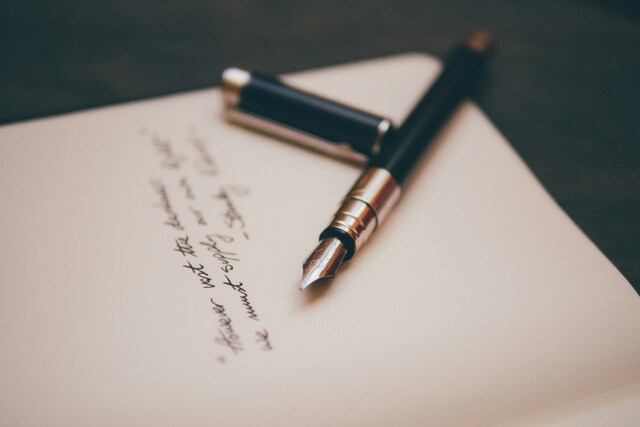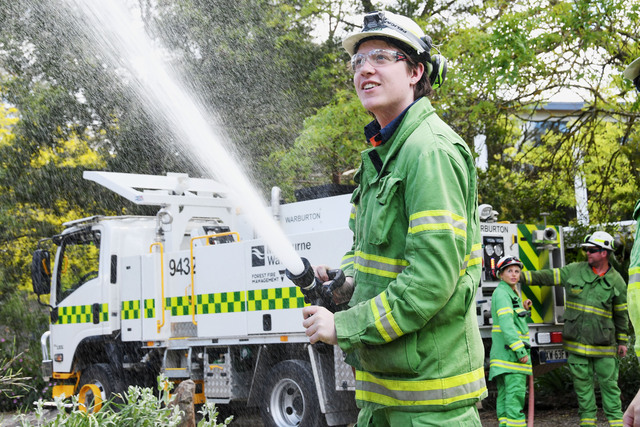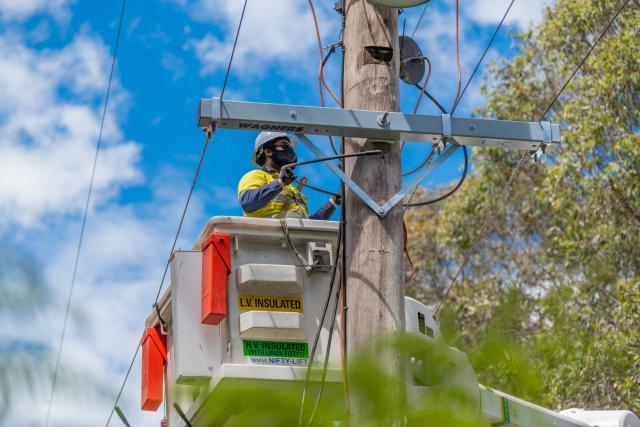When was the last time you bought, borrowed and read a book of poetry?
Or heard someone recite a memorized poem at an event: a wedding, funeral, or birthday.
Or heard poetry at a public event such as the opening of a Parliamentary year or the swearing in of a Prime Minister?
Today there are still many who think poetry is only about flowers and emotions (though of course they can be part of a poem), and others who see poetry as an elite intellectual and academic pursuit.
But humans since ancient times have crafted, memorized and recited poetry as part of daily life and the means of communication: for passing on important information, and of course for celebration.
Moreover, not just embraced by the elite but belonging to all, including the illiterate.
Undoubtedly, too many have been turned off poetry because of past classroom experiences.
Too few were lucky enough to have had a committed and inspirational teacher like Mr Keating in Dead Poets Society.
Sadly, they have come to see poetry as irrelevant to the many problems and challenges we confront, particularly in the digital age.
This could not be further from the truth Spoken word and performance poetry is flourishing, drawing crowds of young people who respond enthusiastically to a predominantly oral, communal-based poetry and to non-traditional ways of being heard.
When Amanda Gorman stood up in 2021 at the inauguration of President Biden and recited her poem, The Hill we Climbs she brought poetry back to popular culture.
It resulted in poetry making a comeback to many an American classroom.
Regrettably, it still remains marginalized in our schools, though the young have embraced the spoken word in the form of Slam Poetry performances.
Today, poets write about the most pressing issues: personal as well as about the often confronting stories we see daily on the evening news or, more likely, any time of the day or
night on our smart phones. housing, cost of living, job insecurities.
Or the wider issues of racism, climate change, gender issues, Islamophobia, unsettling overseas conflicts… because of its form poetry can capture the essence of these stories which leads to discussion and hopefully to understanding and perhaps resolution.
What may have escaped some people is how in the last few years, poets have been walking away with major literary prizes, previously the domain of novels, memoir and other prose
writing.
Could this be because poetry is the literary genre more suited to our times with its immediacy and conciseness?
Yankunytjatjara poet Ali Cobby Eckermann has just recently won the top prize at the NSW Premier’s Literary Awards for her ‘stunning’ verse novel She Is the Earth.
The prize judges described the book as ‘ a series of poems about a woman connecting with both nature and thousands of years of history — as ‘sometimes gentle and sometimes sharp,
both beautiful and terrible, and always profound in its exploration of healing, hope and the earth’..
This is the second year in a row that a First Nations author has won recognition after Gudanji and Wakaja author Debra Dank won a record four out of 14 awards in 2023 with her memoir
We Come With This Place.
In 2023 The Stella Prize was won by Sarah Holland Batt for The Jaguar, a collection of poems about her father’s struggle with Parkinson, some of the most powerful written on this
subject.
Her experiences of her father’ s physical and cognitive decline and unacceptable treatment in an Aged Care facility has led Holland Batt onto a road of activism for improving conditions
in many facilities.
In her own words: ‘I was contemplating] what happens when someone you love becomes someone else, and observing those moments of frailty in old age, those moments of vulnerability’. There are many carers of elderly loved ones who would identify with her words.
In the opening poem My Father as a Giant Koi, Holland-Batt describes her father in a nursing home as if he is ‘at the bottom of a pond / perfecting the art of the circle’.
He surfaces
three times a day when the nurse brings
a tray – cold blanched carrot and beef,
white sauce fillet of whiting, pound cake.”
Who better than a loving daughter to write about the cruelty of a disease that can destroy the personality before the body gives up.
Holland Batt never turns away from facing up to the experience of ageing, illness and death she witnesses in her father’s fight against theis ravaging illness.
She recalls her father’s defiant if impractical acquisition: of a sports car “A folly he bought without test-driving, / vintage 1980 XJ, a rebellion against his tremor”.
[I]t sat like a carcass
in the garage, like a headstone, like a coffin –
but it’s no symbol or metaphor. I can’t make anything of it.”
Her father proceeds to drive it dangerously on the edge of legality and modifies it in destructive ways.
“Finally his modifications / killed it, the car he had always wanted and waited / so long to buy, and it sat like a carcass / in the garage, like a headstone, like a coffin / but it’s no symbol or metaphor. I can’t make anything of it.”
Though lyrical and compassionate it is not mired in sentimentality but brutally frank and therefore honest.
In February 2024 Melbourne poet Grace Yee won (against a field of prose writing) the $100,000 Victorian Prize for Literature at the Victorian Premier’s Literary Awards for her debut verse novel, Chinese Fish.
It is the first time a poet has won the prize, which is Australia’s richest literary award.
This multigenerational family saga is about a Chinese family migrating to New Zealand from Hong Kong in the 1960s where they are at the receiving end of all the discriminations based
on stereotypes of Chinese people.
Many migrants will recognize these uninformed prejudices towards some ethnic groups which still persist today.
In Yee’s New Zealand, Chinese immigrants are characterised as unwashed lepers from unsanitary villages who are trying to infiltrate the Garden City paradise.
‘Yet they are faced with daily doses of European food with the life cooked out of it, and left to clean “the s**t” from other people’s long johns.’
For these immigrants
………………..from the impoverished
unsanitary
villages of China,
where beggars and vagabonds are numerous,
and lepers particularly wretched,
where the coast is infested
with pirates, children
kidnapped and sold, and whole families
live on boats,
New Zealand is a paradise.
Migration politics and past policies in Australia and New Zealand are brought up, as well as to how some of the citizens treated the immigrants.
All this makes Chinese Fish a very confronting book which forces the reader to feel the pressures faced by migrants as they try to adjust to new ways and assimilate.
To read Rob Wallis’s 2021 Down Rainbow Road,, New and Selected Poems is to enter into a life that for many may not be their lived experience but that does not in any way diminish the
universal and shared aspects of this collection: the human need for love, intimacy and acceptance.
To read about the bigotry, cruelties, injustices and hypocrisies of the past, and not so very past generations, told for the first time in the conciseness of the poetic form is uncomfortably challenging.
Here we have a man responding to a world where difference was marginalized, responding sometimes with pain, sometimes with pleasure but always with honesty about his own sexuality.
During the COVID lockdown Rob Wallis spent time researching the treatment of homosexual men from the early days of settlement under Governor Philip whose
belief was that only two offences deserved the death penalty: murder and sodomy.
My solution to imprison /the convicted felon/ until the opportunity offered/
to deliver him to the natives of New Zealand/ and let them eat him.
A collection published in March 2024 titled Stellar Atmospheres by Alicia Sometimes has in her own words ‘made scientific research the basis for a great deal of my poetry.’
Her poetry poses those questions which fascinate us: what happened before the Big Bang?
How will the universe end?
Andrea Russell in her introduction to the book says:‘ Poetry is as valid a method of integrating the universe as any other’
in the first three minutes of the universe everything that would be
anything started to ferment. clump together.ready to sing at a recital.
began to develop lips to form the word poem.. it all moved towards a
Christmas card that got people we don’t know back together. after
this – one star dreamed of turning away another just because it
needed time to shape clay. the universe became a rogue gallery of
jigsaws fighting for space and in softer moments, mango juice
squeezed from the heavens sparkled like iridescent
jellyfish suits
The examples above show that poetry is alive and well and unafraid to handle the difficult topics that form part of our existence.
Perhaps the next time you visit a bookshop or browse online you may go beyond the novels and memoirs and look at what poetry books are being published.
You will not be disappointed.
As someone put it :Poetry is like the Windex on a grubby car window—it bares open the vulnerabilities of human beings so we can all relate to each other a little better.
The Woorilla International Poetry Prize 2024 is now open to receive entries
Competition Opens:1 June. Closes: 30 September
For further details, visit woorilla.org.au







